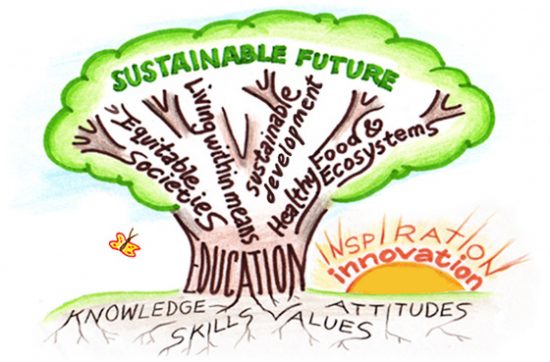
Education for Sustainable Development in Pakistan; Fostering Change through Learning
Introduction
Sustainable development simply refers to the idea that development that comes and stays over generations. This idea of development means that progress comes to meet the needs of present generation without having to compromise the ability of future generations to be able to meet their own needs. Sustainable development mainly integrates all the economic, social and environmental aspects of growth and expansion as well as advocates all kinds of responsible practices for a balanced and inclusive future for generations to come. This often involves setting up the mindsets of the society in a positively influencing manner.
Importance of Education
Education plays a very important role in shaping mindsets and fostering sustainable practices. Increased awareness of the society will help people to understand how they can inculcate sustainable development practices. In the context of Pakistan, integrating sustainable development in the education system hold a lot of importance for holistic progress and development.
In spite of the Pakistan’s education system developing in the last decade, there are still a lot of challenges that are being faced by the Pakistani education system. Some of these challenges include inadequate infrastructure, outdated curriculum, gender inequality, inaccessibility of trainings to teachers resulting in outdated methodologies, disparities across various regions and hindrances in technological development as well as inaccessibility to the internet in rural areas of the country. All these challenges and hurdles hinder the effective integration of sustainable development principles in the education system of the country.
The Government’s responsibility towards Education
It is one of the major responsibilities of the government especially the education ministry to ensure that these hurdles and challenges were addressed in an effective way. The Pakistani government has introduced a number of programs in this regard including the National Education Policy and Sustainable development goals (SGDs) to infuse the sustainable development concepts into the educational frameworks.
NGOs also actively contribute by raising awareness in the public regarding education, modernizing and developing educational materials. These NGOs also work in collaboration with the educational institutions to promote sustainable development practices.
Socio-economic benefits of Sustainable Education
Sustainable education brings a number of socio economic advantages to the society. Not only does it bring short term benefits but these benefits are carried on forward in future generations as well. Sustainable advantages nurtures and promotes critical thinking skills, entrepreneurial skills, enhances the problem solving abilities and also contributes to the overall socio-economic growth and development as well as empowerment.
In addition to its socio economic benefits, the education in sustainable development also brings about environmental consciousness, which promotes responsible behaviors that contribute towards preserving the environment.
Conclusion
Concluding this discussion, it could be said that education for sustainable development is a cornerstone for Pakistan’s progression towards a society that is mindful of its environmental, social, and economic responsibilities. By collectively addressing challenges and embracing concerted efforts, Pakistan can pave the way for a future aligned with sustainable development goals.

Content writer, educationist, teacher, researcher, social media manager, and a SEO manager from lahore. She has been working as a freelance academic and non-academic writer for more than 10 years now. She has a passion to learn new things and has a knack for writing and she combines both things to produce write ups she pours her heart out in.

